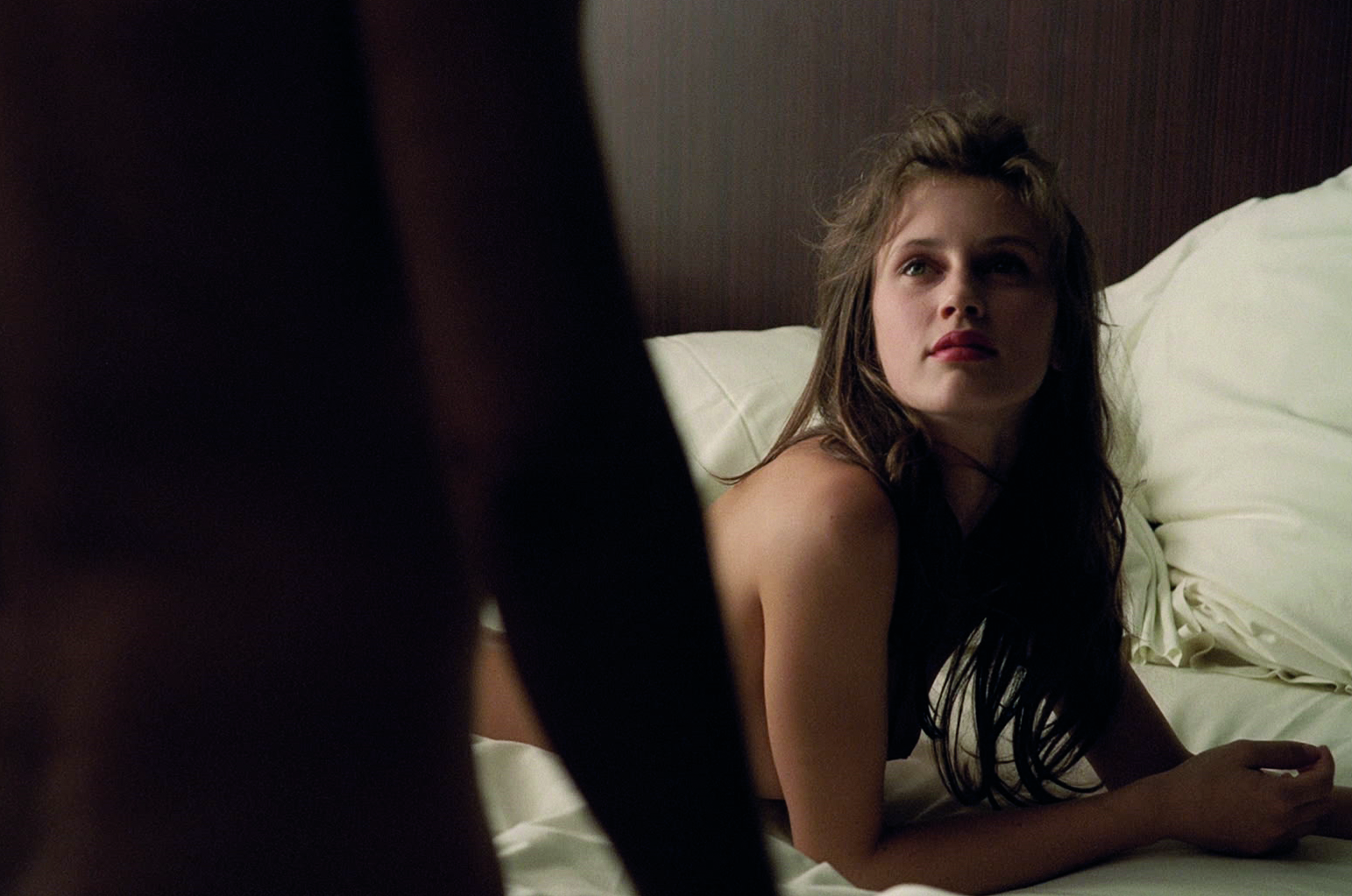
In a Paris schoolroom, modern teenagers recite snippets from Rimbaud’s “No One’s Serious at Seventeen.” One of these students, Isabelle Bontale (Marine Vacth), fills her evenings with more than homework and dreams of the boy in the back row. After a summer by the sea, during which she allowed a German boy to take her virginity, Isabelle has turned her blooming sexuality into a business enterprise: freelance prostitution. Earning 300 to 500 Euros for each hotel assignation, she goes by the name Léa and gives her age as 20. She’s 17.
At last year’s Cannes Film Festival, François Ozon’s Young & Beautiful ceded the limelight to another French entry about a teenage girl’s sexual adventures, Blue Is the Warmest Color, which took the Palme d’Or and earned both critical acclaim and popular notoriety for its energetic scenes of lesbian love. At about half the length and a lower dramatic temperature, Young & Beautiful is sexually charged but not prurient, the character study of a person at her most mysterious age, as she navigates from girlhood to womanhood.
(READ: When Blue Is the Warmest Color triumphed at Cannes)
In outline, Young & Beautiful (Jeune & Jolie, which literally translates as “young and pretty”) appears sensational: I Was a Teenage Call Girl. Yet the tone of the film is tender and judicious. It pins no blame on society, school, the girl’s clients or her parents. Isabelle treats her concerned mother (Geraldine Pailhas) and amiable stepfather (Frédéric Pierrot) the way any teen might: as the security guards of an enemy state who deserve little communication and no straight answers. In fact, they are the innocents, she the daredevil spy with a dirty secret.
She is closer to her sweet younger brother Victor (Fantin Ravat), who watches her sunbathe nude or masturbate in her bedroom. Yet he also is ignorant of her exotic, potentially dangerous career. So is everyone else; Isabelle has a facility for compartmentalizing her activities. That first night, as she lay on the beach with the German boy, another Isabelle stood nearby watching, appraising, detached.
Why does she choose this line of work? That’s for the spectator to speculate. “This young woman is a mystery to me, too,” Ozon has said. “I’m not ahead of her, I’m simply following her, like an entomologist gradually falling in love with the creature he’s studying.” But a key can be found in Ozon’s previous film, In the House, in which a 16-year-old schoolboy devised an elaborate, largely fictional world both to amuse himself and to confound his teacher. The director suggests that Isabelle wants to create a double life that is even more eventful and reckless, and potentially perilous.
(READ: Richard Corliss’s review of François Ozon’s In the House)
“It was like a game,” she tells the psychiatrist (Serge Hefez) she is obliged to consult. “I didn’t feel much during it. But when I thought about it at home, or at school, I wanted to do it again.” She may be drawn to her more considerate clients, like the elderly Georges (Johan Leysen). Even when taking orders of submission from sadistic creeps, Isabelle is in charge. Armored in self-confidence, she needs no pimp to protect her. Her choice of profession is not about the sex. It’s about the power.
Set in today’s Paris, Young & Beautiful takes several cues from 1960s French popular culture. Isabelle has a cinema forebear in Catherine Deneuve’s character — a loving wife who becomes a prostitute to act out her sexual fantasies — in Luis Buñuel’s Belle du jour (1967). Vacth resembles Deneuve in her cool, unyielding beauty. She could also be a twin sister to Françoise Hardy, the singer and model of the ’60s; four Hardy songs accompany the four seasons in which the film is set. Hardy’s songs are about the pains of first love; Young & Beautiful is about the business of post-love.
Ozon’s early films focused on young women manipulating their elders: Water Drops on Burning Rocks, 8 Women and Swimming Pool, all with Ludivine Sagnier as their driving sexual force (Sagnier’s Swimming Pool costar, Charlotte Rampling, makes a welcome, poignant appearance late in Young & Beautiful.) Ozon has said that In the House reminded him of his pleasure directing young actors. Vacth, 23, is a few years older than her character, but she can pass for Isabelle at a mature and adventurous 17.
(READ: Mary Corliss on François Ozon’s Potiche)
Her blue eyes shining above a field of freckles, Vacth suggests a classical statue with some subtle internal bruising. Possessing a seductive, covert intelligence, the actress may not let viewers in on Isabelle’s motives, but she does suggest that something is going on. Audiences should be pleased to go with her, not knowing the destination but happy to take the trip.
More Must-Reads from TIME
- Donald Trump Is TIME's 2024 Person of the Year
- Why We Chose Trump as Person of the Year
- Is Intermittent Fasting Good or Bad for You?
- The 100 Must-Read Books of 2024
- The 20 Best Christmas TV Episodes
- Column: If Optimism Feels Ridiculous Now, Try Hope
- The Future of Climate Action Is Trade Policy
- Merle Bombardieri Is Helping People Make the Baby Decision
Contact us at letters@time.com